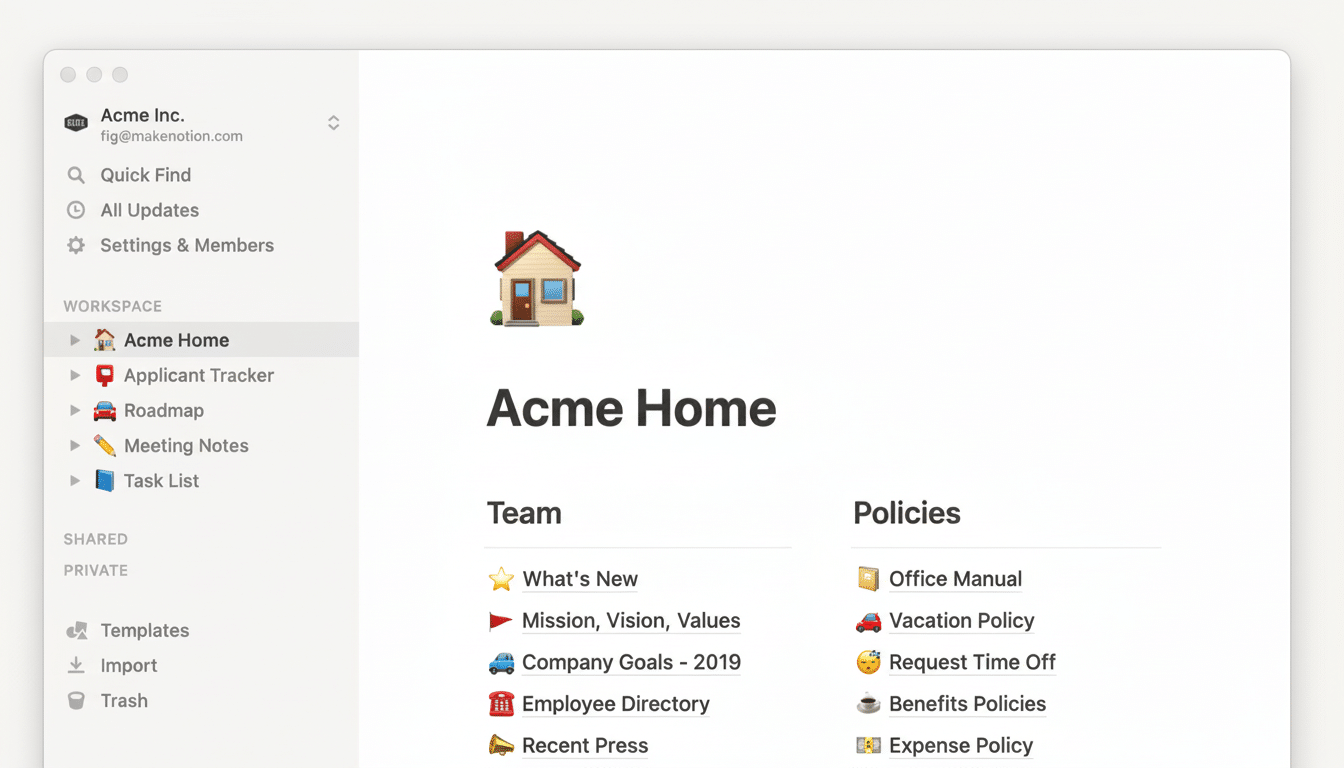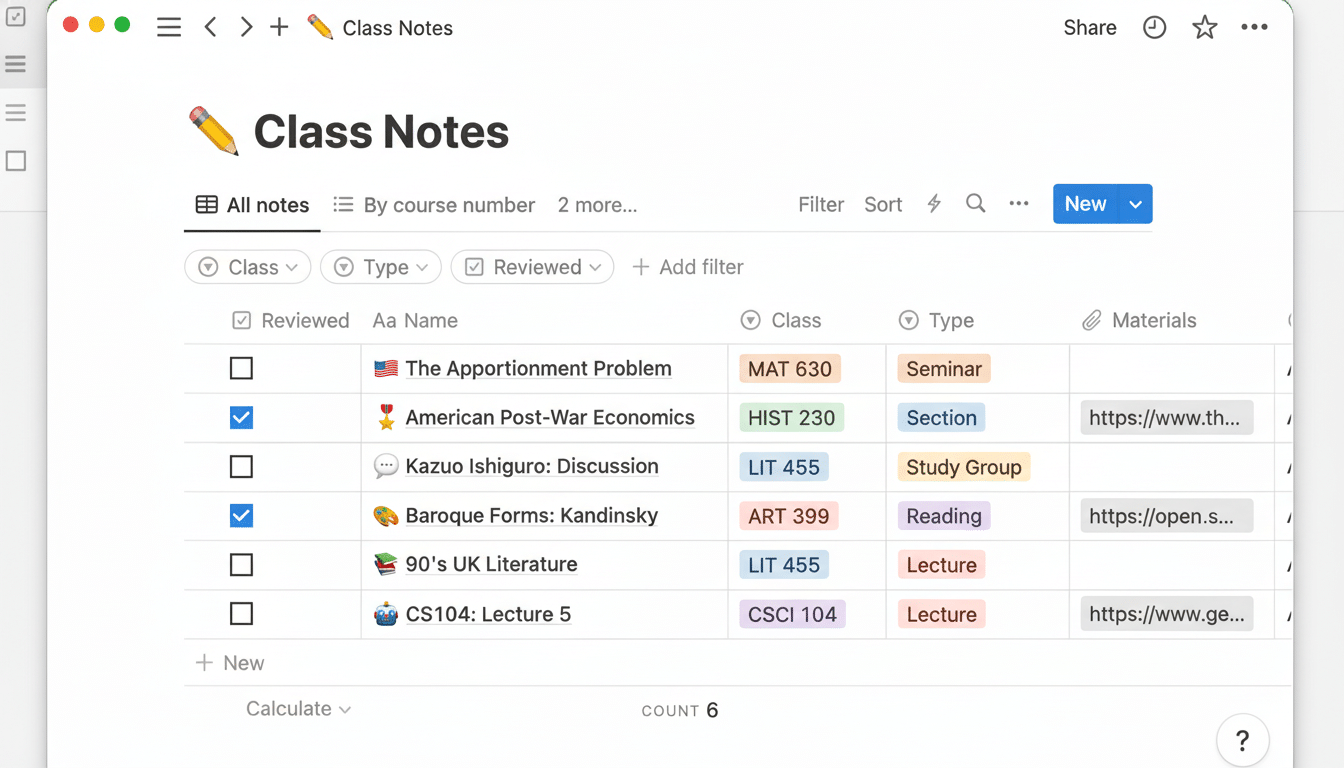Notion is introducing a new category of intelligence to its all-in-one workspace product that enables computers to freely explore and perform tasks on your behalf: autonomous systems, or agents, that complete entire multi-step activities in Notion across pages and databases for you. The launch takes the product beyond chat-style help into workflow automation, with an eye toward transforming the company’s knowledge graph into a living operational layer.
What Notion’s agents can actually do across your workspace
The agents eat your workspace for breakfast (notes, docs, tasks and organized databases), then output results and modify records without copy-pasting manually. New pages or databases can be made and properties edited, views generated, such that a new competitive tracker or cleaned customer feedback table could emerge from unstructured inputs.

Notion says the current model is capable of multi-step jobs up to roughly 20 minutes, and can scan hundreds of pages in a single pass. It follows up on Notion AI’s previous summarization and searching abilities, but in a more agentic manner: figure out the steps in your problem, look at available source material you need to use, and then write back answers to where they’re supposed to go.
A “profile” page allows teams to give the agent guidance on style, citation preferences and destinations for interim and final outputs. It’s able to “remember” frequent preferences (“gray text!” or “edited on profile page”), which are saved and editable on the profile page — this is great for keeping consistent tone and taxonomy across concurrent projects.
Inside the workflow: Meeting notes as dashboards
In demos, agents turned meeting notes into analysis pages with action items linked back to tasks, created competitor briefs with source attribution and criticism, and spun up a restaurant tracker complete with ratings and tags. For software teams, an agent can create a bug dashboard by scraping bugs mentioned in Slack, email and drive documents and normalizing them into a Notion database table including priority, status and owner.
Today, actions are manually triggered, though Notion is working on customizable agents that can be scheduled or triggered by other things happening. A template library is also coming up, so teams are able to begin based on prebuilt patterns rather than having to construct the prompts entirely from scratch.
Why this is important for knowledge work
Spreadsheet workers waste time scrubbing and reshuffling data between tools. McKinsey estimates that workers spend about 19% of their time looking for information, and it projects that generative AI could add $2.6 to $4.4 trillion in annual economic value when deployed at scale. A practical path to reclaim those hours lies in agents that are embedded directly into a system of record — meaning less context switching, more accurate handoffs and cleaner datasets.

The decision is part of a larger platform shift. Salesforce, Fireflies and Read AI have all rolled out agents that pull insights out of conversations and update records; Atlassian has previewed agent-powered help across its suite; Microsoft and Google are weaving agent-like behaviors through productivity apps and automation tools. Notion’s differentiator is its all-in-one canvas: docs, tasks, databases are all in one place, and that makes read-write automation easier than bolting a servo motor onto an ad-hoc stack.
Under the hood: context, structure and control
Agents work best when they can view structured data and write back predictably. Notion’s database model — properties, relations, rollups and views — gives the agent a schema to aim for. That minimizes the chance of “helpful” output ending up in the wrong document or with the wrong fields, a frequent failure mode for general-purpose assistants.
Admin-grade controls will be critical as usage becomes more widespread. Firms will desire more pass-through-permissioned action, fully audited writes and sources to be co-signed for produced analytics. They’ll also want guardrails around external connectors — from Slack, email and cloud drives — so that agents don’t accidentally move sensitive information across projects. Notion has developed security features for its core product; offering those assurances around the actions of agents will be a crucial test of trust.
Limits, risks, and the road ahead for Notion’s agents
Modern manual triggers: No agents will act as unattended automation just yet. The 20-minute run window marks a realistic limitation: long, branching workflows could drift or fail silently without railings. Reliability, versioning and observability — understanding what the agent did and why — will matter as teams push from summaries to business-critical updates.
Costs and ROI will also drive rollouts. To benchmark agent accuracy and time saved by task type, organizations are experimenting with “evaluation harnesses.” Gartner has predicted that most organizations will adopt generative AI APIs and models in the next years, but ongoing deployment depends on seeing measurable improvements with predictable behavior, not just neat demos.
Bottom line: what Notion’s agent launch could mean
By releasing agents that read, reason and write all over its workspace, Notion is betting the future of productivity isn’t yet another chatbot but an assistant who can close the loop. If the company could match tight controls to reliable execution, workgroups might be able to migrate from “create and clean” all the way up to “specify and supervise,” and save an hour or two in every eight slugged through data swamps.

